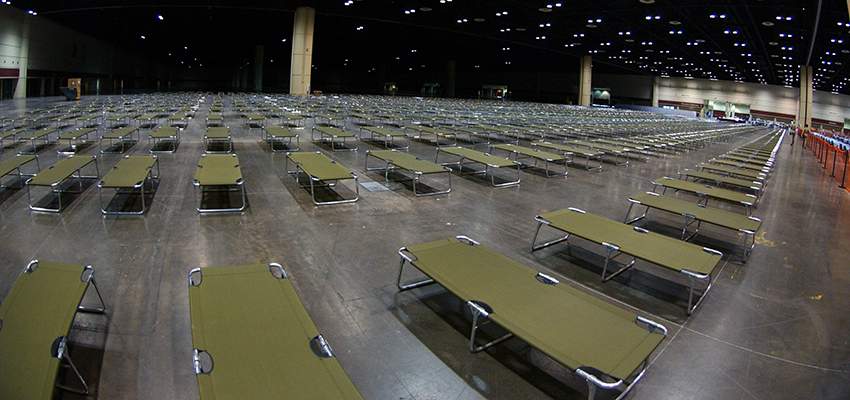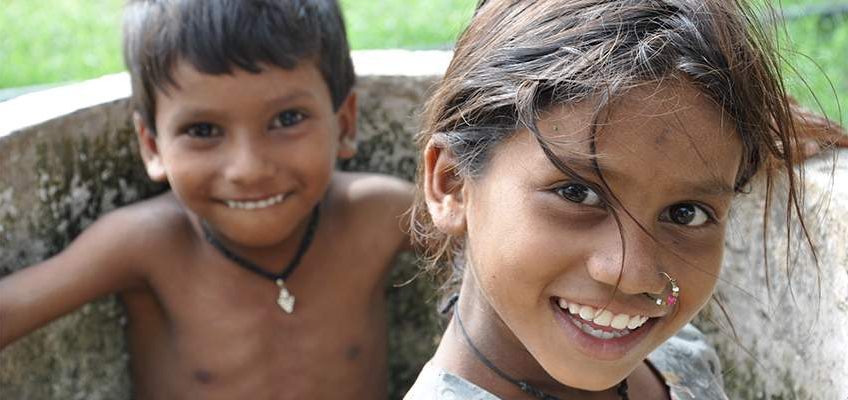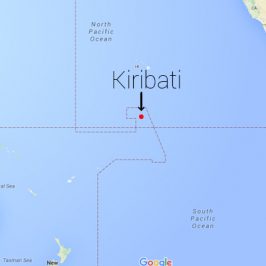Natural disasters are a reality. They happen often and they happen quickly, leaving destruction in their wake. Torn buildings and roads, damaged infrastructure, grid down, polluted water sources, scarcity of food.
And this is true, whether in rural India or in urban India, whether in a developed country or in the developed world. Devastation has not heard of economic prosperity or the lack of it. When Mother Nature gets angry, everything in her path gets affected brutally.
Some people say that despite all the talk and hoopla around prepping and its absolute necessity, less than 7% Americans are ready or prepared for it. Hurricane Katrina proved this in no uncertain terms. Even a few hours of downed grid power leads to riots and arson and vandalism. And individual families have no idea how to cope with it. Like all 'normal' people they expect the Government and the system to come to their help and rescue. Even for meagre resources like shelter, food and water. When the people were crammed into the New Orleans stadium after Hurricane Katrina, it took the Government almost five days to get drinking water for the 'refugees'. This is an urban centre of the developed world. Imagine the situation in a less developed part of the globe.
Let us take the analogy of the developed and the developing world into our backyard ... India. We are a country of a billion and more people, with unique cultures, diversities, religions, languages, etc. We live in a vast country, each different from the other. But even within a small geography, from a survivalists point of view, there are definite advantages and disadvantages between two areas located close to each other, bearing many similarities to each other, except the fact of economic disparity. One section is much poorer than the other. And that brings us to the crux of the discussion here.
Let us look at the urban rich in India first.

They live in cities, surrounded by the many amenities city-life and money provides. Electricity in the homes ensure gadgets like washing machines, dryers, microwaves, mixers, grinders, refrigerator, television, internet, mobile phone, air conditioning, heating, and the many other benefits of a modern life. With infrastructure becoming better, I wonder how many kids from such families have even seen a candle apart from the ones they blow away on their birthdays! Would they know where they have kept the torch they bought last year? In a grid-down situation, how much food can the family provide once the stuff in the refrigerator runs out? With shops shut and the domestic motor inoperable, what is their source of drinking water? Kids these days cannot survive a moment either without air conditioning in the ir rooms or an operational mobile phones in their hands. With both becoming absent, how many families will have to face domestic discord and rebellion from their kids?
Now let us look at the street people, the downtrodden, the forsaken, the children of a lesser God.

They comes to our homes to clean up. They pick up the garbage to keep the city clean. Many of them keep the public transport system up and running. They cover up the potholes on the roads under the blazing summer sun. The construct the flyovers on which we drive our cars.
And then, at the end of a hard day's work, they go back to their shanties. We probably turn a blind eye to their homes, considering it an eyesore that spoils the pristine nature of our cities. But let us look at their homes from a survivalist's point of view.
Are they worried about their homes getting demolished in an earthquake? No. They already live in a makeshift shelter and it is one that will crumble down on them. Even if it does get ripped apart, it is very easily replaceable. Shelter is not something they need to worry about. Along with shelter comes clothing and the ambient weather. They live the way they do, with the clothes they own. They are used to this environment and even though the rest of the city may be in shatters due to a natural calamity, their life remains pretty much untouched.
Have you considered the water they drink? They surely do not go the friendly neighbourhood store to pick up bottled water for themselves and their kids. They drink what water they can lay their hands on. If any of us took even a sip of the water they drink, we could fall sick for a very long time. So water is not a priority for them ... they are past masters at finding water and drinking whatever they can find without a thought of germs and diseases. And their kids grow up to be hardier than the kids from more privileged backgrounds whose bodies have been denied the growth of natural resistance to bacteria.
Food is less of a priority on a survival situation. In any case their intake of food is much more frugal in any case for them to be missing the McDonalds Burger or a Subway sandwich. It is the city folk who will end up feeling denied and deprived.
People and families living on the streets or in urban slums and shanties are largely nomadic. They are always prepared to be made further homeless due to the whims and fancies of the local cops or authorities. They can pack up and leave and set up house anywhere else before one can say Mahatma Gandhi. They do not have piped gas to cook, but they have a fire every day in their homes to cook whatever meals they can. Lighting fires is not a novelty for them.
Even injuries heal faster since the body has grown defenses against wounds and injuries and other sundry illnesses. I doubt how many street people have ever popped an antibiotic.
According to me, the best way to learn extreme urban survival is to spend a week with the street people.
They know how to survive and they can teach us a thing or two about survival tactics. Things that are learnt on the street and probably not found in any book or survival school. They might be living right outside a fancy high rise gated colony, but when push comes to shove, when Mother Nature comes calling with all her fury, it is these people who will be the ultimate survivors while the rest of the educated, urban, monied city folk will be rushing to Government run shelters for basic necessities.










Leave a Reply
You must be logged in to post a comment.